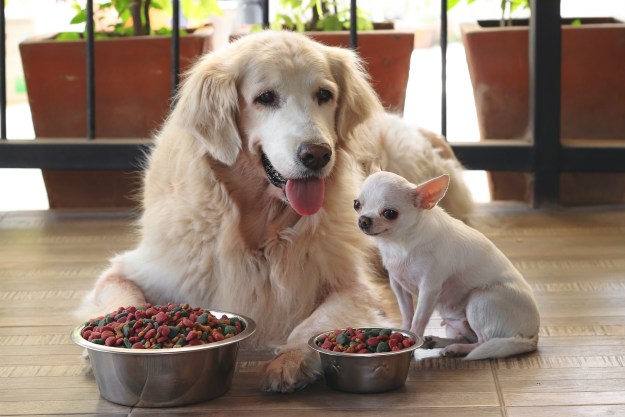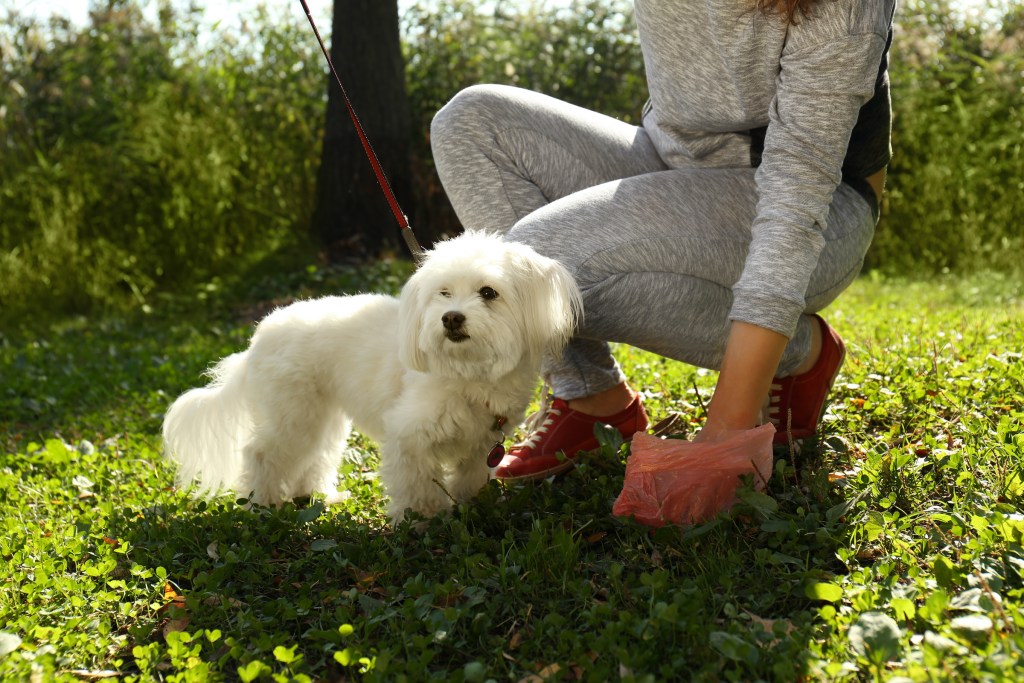
Just like with children, adopting a dog comes with its fair share of messes. Whether you have torn-up squeaky toys strewn about your house or a muddy dog streaking through the yard, these are the things pet owners have to learn to take in stride. Besides, a little mess can be fun sometimes!
- Pumpkin is packed with helpful nutrients to help a dog’s system reset
- Chicken and rice is a canine classic, and it can be great for dog diarrhea, too
- Chicken or bone broth can be a helpful ingredient for dogs with diarrhea
- Cooked white or sweet potatoes are other starchy options that are easy to digest
Dog diarrhea, though, is the opposite of a fun mess. No one enjoys trying to clean up something so runny and stinky, and it’s even more miserable being on the other end. Luckily, there are a few simple home remedies for diarrhea in dogs that you can whip up from the comfort of your own kitchen. Odds are, you already have some of these ingredients!
Here’s what to feed dogs with diarrhea.
Pumpkin is packed with helpful nutrients to help a dog’s system reset
When your dog has diarrhea, you might not think of feeding them some pumpkin, but this vegetable can be a great source of bowel-regulating soluble fiber. Believe it or not, this fiber also helps dogs with constipation, so pumpkin can be a great choice whenever your pup is under the weather.
According to the American Kennel Club (AKC), this autumnal vegetable is also packed with nutrients:
- Vitamin E
- Thiamin
- Niacin
- Vitamin B6
- Folate
- Iron
- Magnesium
- Phosphorous
- Vitamin A
- Vitamin C
- Riboflavin
- Potassium
- Copper
- Manganese
With just a little pumpkin, your dog can start to get their strength back while their system re-regulates. It’s important to double-check that you’re feeding your pup plain pumpkin puree, as the ingredients in seasonings or pumpkin pie filling can do more harm than good.
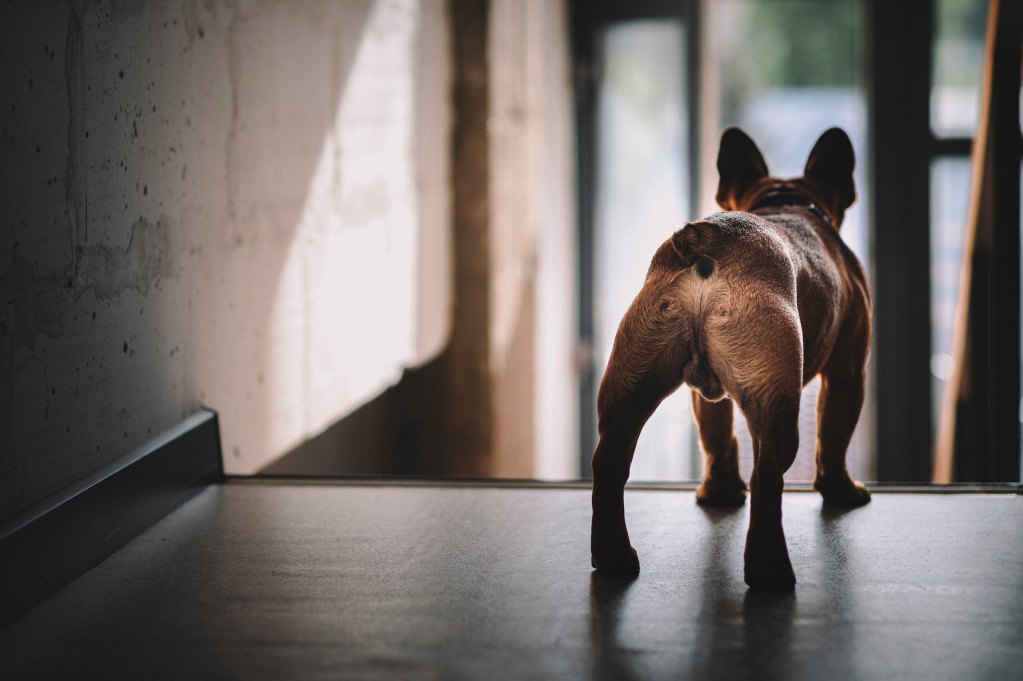
Chicken and rice is a canine classic, and it can be great for dog diarrhea, too
Even rookie dog owners hear about the benefits of chicken and rice for pups that need a temporary bland diet. This staple offers a bit of protein and fat alongside a bland starch, so your dog will feel full and still get some nutrition while they’re under the weather. Both of these ingredients are easy for canines to digest, though the AKC advises owners to stick with plain white rice, as brown rice can be a bit harder to digest.
Even rice water has benefits for dogs! The AKC lists this ingredient as something to feed a dog with diarrhea, though you may need to add a splash of chicken broth for flavor. So while you’re preparing rice for your pup, don’t forget to save the water you rinse it with.
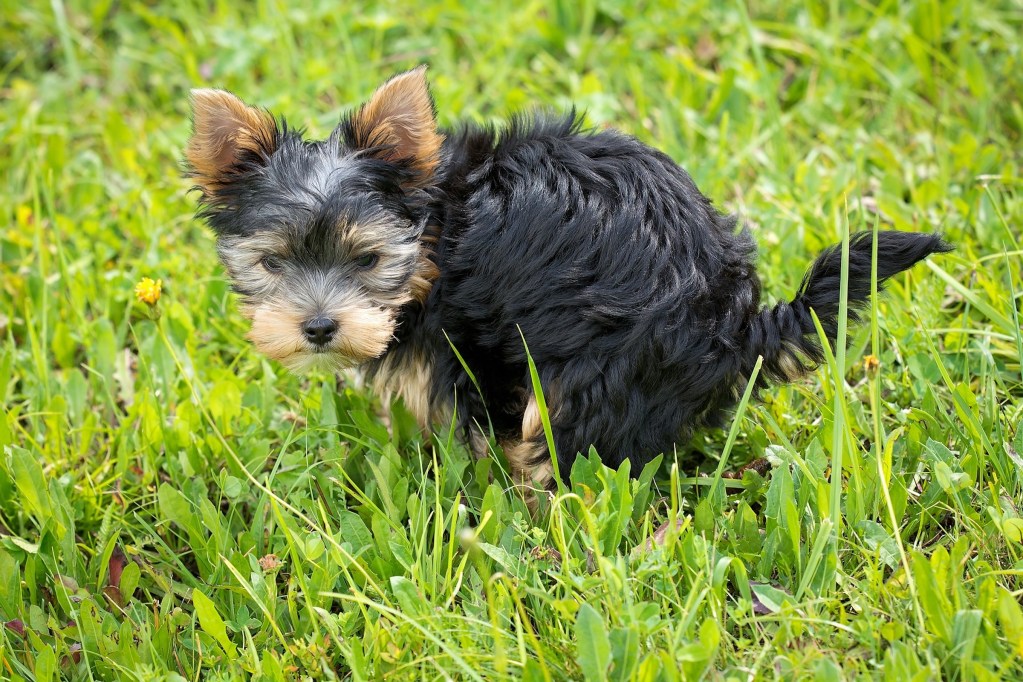
Chicken or bone broth can be a helpful ingredient for dogs with diarrhea
In the same way that rice water can take the edge off an upset stomach, so can bone broth.
You can easily buy broth at any grocery store, so no preparation is required, but if you do, make sure to buy plain broth with no additives or extra salt. You don’t want to take an accidental step in the wrong direction! Unseasoned broth can be mild on a dog’s stomach, which is ideal for when their body needs to reset.
If you choose to make broth at home, the AKC recommends filling a slow cooker with bones like beef marrow or poultry joints. Then, it suggests you “cover the bones with 2-3 inches of water, cover [with lid], and cook on low for 20-24 hours.” Your broth won’t harden until you transfer it to the refrigerator for several hours. At this time, a layer of fat will separate, too, so your broth will be ready for storage and use.
Bone broth can be great to use on top of plain white rice when a dog is feeling picky, though it can even be added to water to make it even more enticing. After all, hydration is ultra important when a dog has diarrhea.
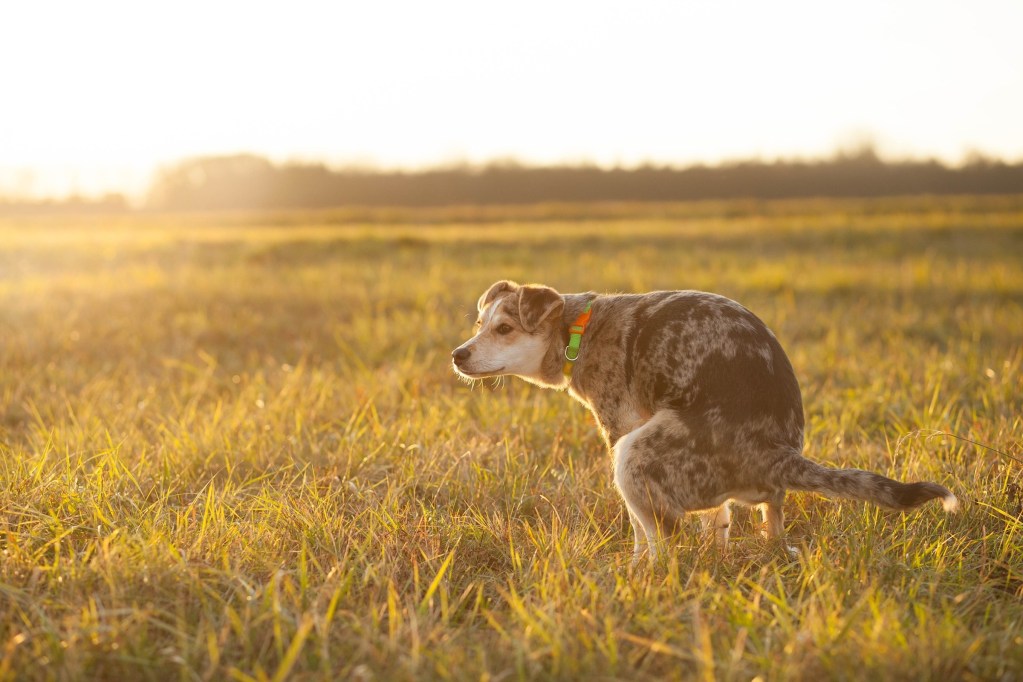
Cooked white or sweet potatoes are other starchy options that are easy to digest
Potatoes don’t always come to mind as a super food for dogs, but sure enough, they are easy to digest for pups dealing with stomach trouble. You can choose between white potatoes or sweet potatoes, notes Chewy, but whichever you pick, remember this: Dogs cannot eat raw potatoes. That’s because spuds contain solanine, a chemical compound that can be toxic to some canines.
To cook potatoes for your dog, try baking or boiling them until they’re soft all the way through. Cutting them into bite-sized pieces is usually the way to go, but you can also mash the potatoes for dogs that need something softer. Remember not to add milk, cheese, or any other ingredient to any potatoes you’ll be feeding your dog. Plain is perfect, especially when your furry friend is already dealing with diarrhea.
Hopefully, some of these items are already in stock in your kitchen. You never know when your dog will come down with diarrhea, and keeping your pup fed with bland foods like these can make a world of difference. Of course, if you run into any complications, or if your dog doesn’t want to eat for longer than a day, contacting your trusted veterinarian will be the best course of action. Most of the time, though, these foods and a little time is all your fur baby will need to start feeling better.
Editors' Recommendations
- The Best Dry Dog Food of 2023 for a Balanced Diet
- Why does my dog have a bald patch on their tail? Here are the answers you need
- Looking for signs your dog has ticks? These telltale symptoms mean you have a flea or tick problem
- Xylitol is dangerous for dogs: 10 surprising products that contain it as a hidden ingredient
- Here’s how to treat a dog with itchy paws, starting with finding the cause of paw discomfort


